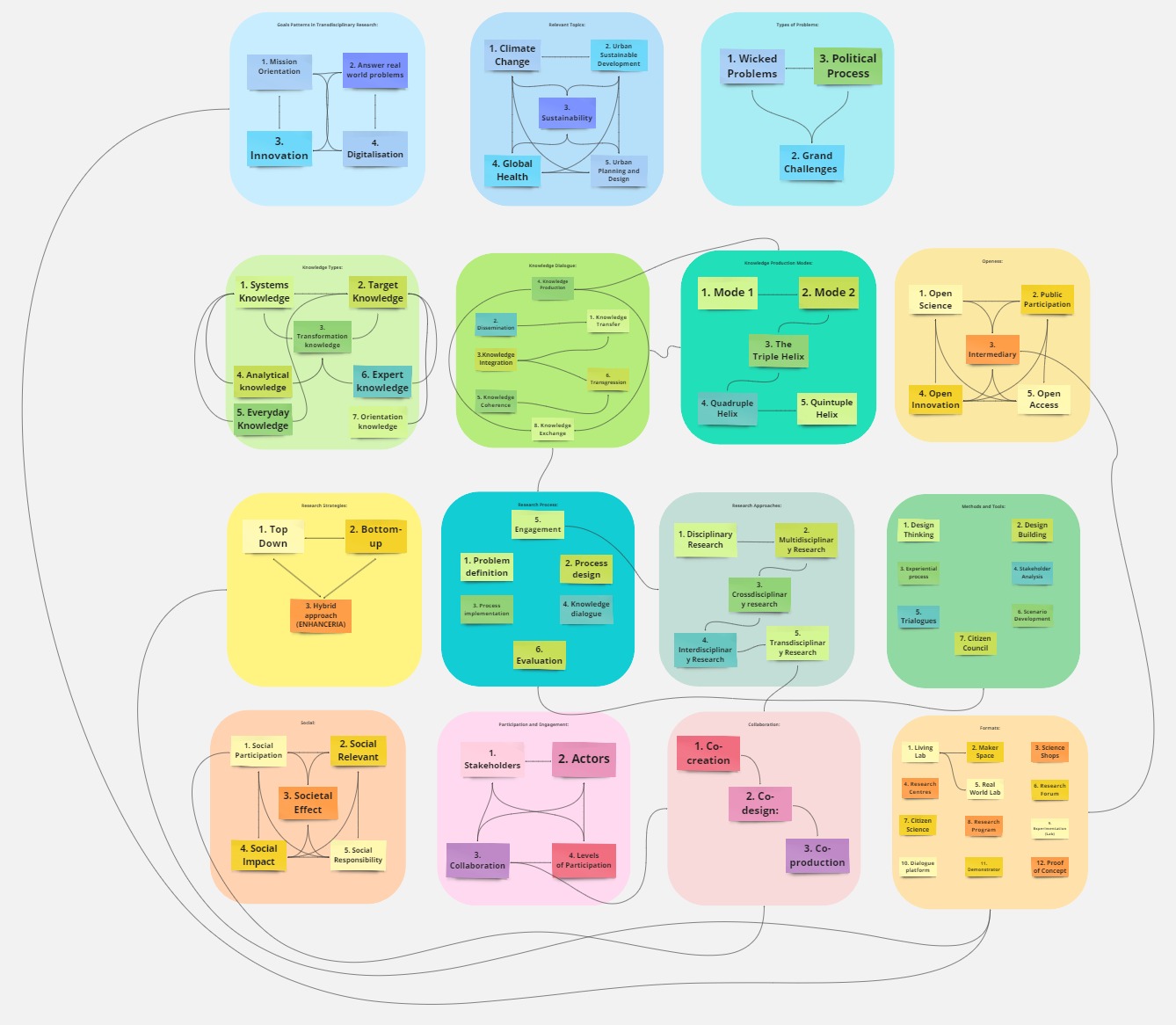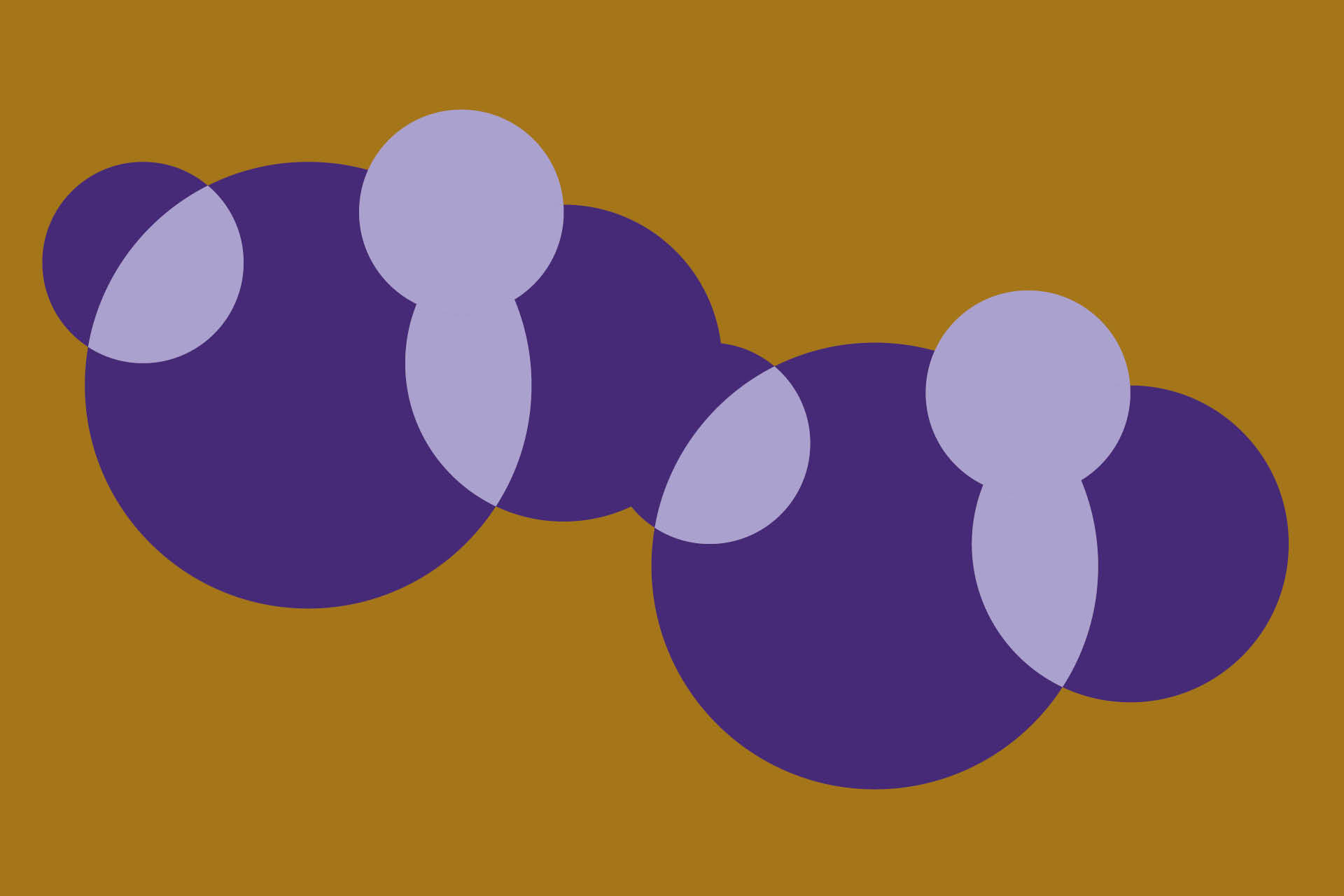Transdisciplinarity is a complex issue.
In order to facilitate communication and build a common understanding of the subject, we initially set out to develop a glossary of key terms around the topic of transdisciplinarity. The glossary is related to the broad shared ENHANCE definition on transdisciplinarity and immanent part of the mutual learning environment we created with the Alliance on this topic. This evolved into the design of a living document which not only defines concepts and terms, but traces the relationships between them and their evolution. This approach allowed us to harness the value of this diversity by formulating a framework for the Glossary that accommodates the concepts organised according to the proposed logic, as well as references to related literature, internal links and relevant interactions. Below, we present the logical structure of the Glossary, developed through workshops and in-depth interviews with representatives of the ENHANCE Alliance universities. The concepts and definitions used by researchers and practitioners were mapped on a Miro board, which formed the basis for discussions on taxonomies and keywords.

The discussion began with an understanding of both the variety of understandings on transdisciplinarity and the basic issues and concepts that are at the core of transdisciplinarity, i.e. the goal patterns of transdisciplinary research, relevant topics and essential types of problems, methodologies, relevant academic and non-academic actors involved and types of knowledges integrated.

One of the most important outcomes of transdisciplinarity as a research mode is the creation of new knowledge and its dissemination form. From the perspective of researchers, the elements of knowledge exchange, ways of knowledge production and openness in sharing knowledge with the broader community are extremely important to tackle complex problems for sustainable transformation.

The design of a transdisciplinary research process also depends on the individual approach of the institution or at least the research team. It differs in the scope of the university governance, guidelines, strategy, but also the approach to the transdisciplinary research process, the individual researcher’s interpretation of the implementation during the research process and the methods and tools used.

It is impossible to talk about transdisciplinarity without considering social impact. The effectiveness of a transdisciplinary project is related to the levels of participation, the form of cooperation between science and society actors and the formats of knowledge integration, all of which must be carefully developed before launching a transdisciplinary project.

We have defined four broad thematic areas for the Glossary: terms corresponding to the understanding of transdisciplinarity (Fig. 2); integrated knowledge as its product and the element conditioning its development (Fig. 3); the transdisciplinary research process as the main manifestation of its realisation (Fig. 4); and social impact as one of the main outcomes and justification for its global relevance (Fig. 5). This framework provides an open conceptual structure for the ongoing development of the Glossary, its organisation and the transfer of knowledge and experience within the ENHANCE Alliance.

